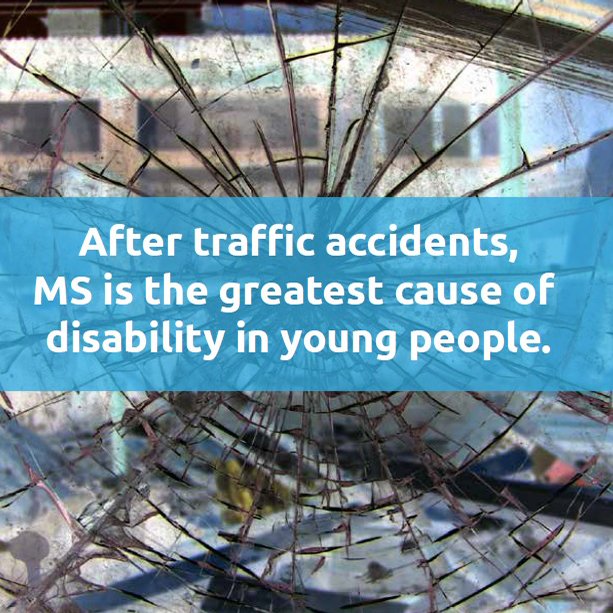About MS
11.05.2021MS is a complex neurological condition for which currently there is no cure.
Multiple sclerosis (MS) is one of the most common long-term conditions affecting the central nervous system (brain and spinal cord) and the main cause of non-traumatic disability in young adults.
MS is associated with loss of myelin, which is a sheath that forms around the nerves. Less myelin leads to disruptions in the transmission of electrical impulses to and from the brain, causing MS symptoms. The sites where the myelin is lost appear as scars. This is why multiple sclerosis means, literally, many scars.
MS is most frequently diagnosed in people aged 20–40 years. It is an unpredictable disease that each person will experience differently, but common symptoms often include
- pain,
- fatigue,
- reduced mobility and
- cognitive dysfunction.
The cause of MS is not known and there is currently no cure. However, timely diagnosis, treatment and support have a significant effect on disease progression and quality of life, regardless of the type of MS. Please find the list available MS Treatments here.
Today, there are more than 1,2 million people living with MS in Europe.

MS Facts
- There are currently more than 1,2 million people living with MS in Europe and 2,8 million worldwide
- MS can occur at any age, but it is most frequently diagnosed in people aged 20–40 years (average age of an MS diagnosis globally is 32 years)
- 70% diagnosed during prime working year and 80% of them usually stop working within 15 years of the onset of the disease
- 69% of people with MS are women and 31% are men
- Every 5 minutes, someone somewhere in the world is diagnosed with MS
- The most common onset of the disease is remitting MS (RRMS) affecting 85% of people with MS and 12% with progressive MS. The remaining 3% are given an unknown disease type on diagnosis.
- 15 billion euros are spent every year in Europe to tackle MS.
- There are at least 30,000 children and adolescents (under 18) people living with MS
- Access to treatment, care and employment varies substantially throughout Europe
In many European countries, people with MS cannot access MS specialists and experience considerable difficulties in obtaining reimbursement for treatment. Many aspects of MS can be managed with appropriate, specialised support. Together with its member organisations, EMSP works to ensure that high-quality support is available throughout Europe. EMSP teams up with many players in the field of MS, chronic diseases and human rights to ensure that the voice of people with MS is heard in Europe.
Find a detailed European MS database about the situation of Multiple Sclerosis in different countries of Europe in the MS Barometer.
Traveling with Disability
If you are living with MS, the EU disability card will provide an easy, physical way to recognise disability status when travelling in the EU – and some associated benefits, usually on cultural, sports and leisure activities. The European Commission will present a proposal to expand it in 2023.
 Your Account
Your Account
